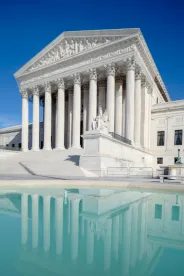It was Supreme Court Justice Sonia Sotomayor who offered the first tip: “So why can’t the employer just simply say, ‘We have a Look Policy that doesn’t permit beards? Can you comply with that policy?’”
Justice Samuel Alito refined the suggestion; instead of asking whether an applicant can comply, he said, “Just say ‘Do you have any problem with that?’”
These surprisingly practical strategies might be the best take-away from the legal battle of EEOC v. Abercrombie & Fitch, the case where dress codes collide with religious discrimination and accommodation under Title VII.
The nation’s high court heard oral argument on Feb. 25 about the case in which the clothing retailer did not hire a young Muslim woman who showed up for her job interview wearing a headscarf. Abercrombie’s “Look Policy” prohibits any headwear for its employees. The EEOC sued Abercrombie for religious discrimination and won. But, the Tenth Circuit reversed the decision and said the applicant never specifically told the store that she was Muslim and never asked for an accommodation.
The Supreme Court is tasked with answering the question of whether an employer must have “actual knowledge” that a religious accommodation would be required, and whether that knowledge must come from the applicant or employee. The company attorney (supported by a bevy of amicus briefs) argued that the EEOC’s theory encourages stereotypes and “would lead employers to treat people differently based on their religion, which is precisely the opposite of what Title VII wants.”
As we await the Supreme Court’s formal opinion, the suggestions offered by Justices Sotomayor and Alito are appealing. (Note the ADAAA familiarity to them: “Are you able to perform this job with or without reasonable accommodation?”) When employers are hiring anyone, it is both reasonable and practical to ask, “Do you have a problem complying with our work rules?” If the answer is that religion interferes, then call your friendly legal counsel.




 />i
/>i
